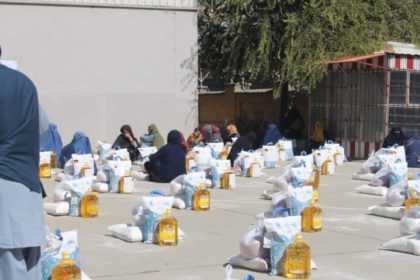RASC News Agency: The suspension of U.S. aid to Afghanistan (under Taliban control) has sparked warnings from economic experts, who caution that the move will severely strain the Taliban’s budget, exacerbate financial deficits, and drive up market prices. Anwar-ul-Haq Ahadi, a board member of the Afghanistan Trust Fund in Switzerland, described the aid suspension as an “exceptionally painful consequence” for Afghanistan. He underscored that the cessation of funding would have detrimental ramifications not only for the Taliban but also for the Afghanistani population at large.
Ahadi warned that this abrupt cutoff would deal a devastating blow to Afghanistan’s fragile economy. He explained that suspending aid would accelerate the devaluation of the kabuli rupees, further deepening unemployment and poverty across the country. A former Afghanistan’s finance minister, Ahadi currently serves as one of the four board members overseeing the Afghanistan Trust Fund in Switzerland. Speaking to the media on Wednesday, January 29, he emphasized that those who had been directly reliant on U.S. aid would be the first to experience its adverse effects. For years, U.S. financial assistance has been a critical lifeline, sustaining key sectors such as food distribution, healthcare, education, and, more recently, development projects.
Ahadi further noted that humanitarian aid to Afghanistan had been estimated at approximately $1.8 billion, accounting for nearly 15% of the nation’s economy. He stressed that one of the most immediate and detrimental outcomes of this aid suspension would be the rapid depreciation of the kabuli rupees against foreign currencies. Ahadi warned that a weaker currency would inevitably trigger inflationary pressures, driving up the cost of essential goods and services.
Moreover, he underscored the Taliban’s inability to stabilize the currency market, predicting that the group would struggle to contain an impending financial crisis.






